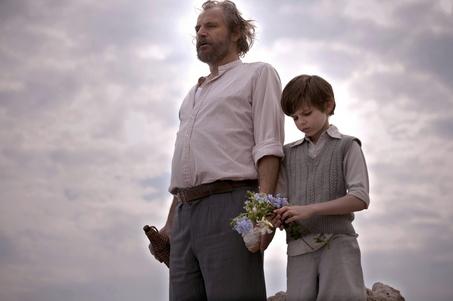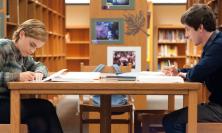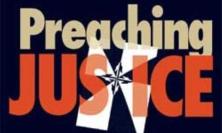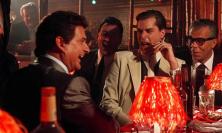Director: Jeremy Podeswa
Starring: Stephen Dillane, Robbie Kay, Rade Sherbedgia,Rosamund Pike, Ayelet Zurer
UK Release date: 29 May 2009
Certificate: 15 (104 mins)
The experience of History, personal or national, can be an experience of haunting. Some things are such deep traumas to the soul they become gouged in memory. They do not allow us to jump the tracks and take up a new journey. They condemn us to travel in a haunted land looking for meaning and redemption without ever allowing us to think that we will arrive at our destination. One such event is the Shoah or holocaust of European Jewry in the Second World War. We cannot be naïve about this event, artistically, socially or politically. Certainly not spiritually. It is not only a matter of knowledge. With events like these, the accumulation of knowledge does not result in understanding. All we can do is enter into a sort of attentiveness in which we try to grasp the experience of the victims and the perpetrators, knowing that is ultimately impossible, for although such things happen in a particular time and history, they transcend it. They haunt us and therefore change the future; they linger in the memory but that does not give us access to them. How can we understand that moment, that mind, those circumstances?
Confronted with such a horror, can we ever believe again in the Enlightenment dream of a rational, humane humanity? Europe remains haunted by the act, its victims and the silence. The silence itself is a form of continued murder. Here, I do not mean only the apparent silence at the time or the post-war desire not to speak, I mean the continued use of memory to justify actions in the present, producing a new complicity in suffering and displacement in those who accept this justification. In these and other ways, memory is used not for redemption and renewal, but as a means to hold the present in captivity to the past. The hegemony of memory claimed by Israel reduces or obliterates the memory of all the other victims of the holocaust; in so doing kills them again.
Yad Vashem is not only a shrine to the memory of the victims whose lives and identities were transformed into prison numbers – the erasure of the person into the system; nor is it only an important memorial to the radical evil that stalks the human heart and mind: it has become the new founding narrative of the secular state of Israel, its new Passover. Except in Yad Vashem, there is no liberating God, only an exodus into a strange, tortured secular history. Theodor Adorno, the most radical Jewish philosophical and cultural critic of the post-holocaust world, asked ‘whether one can live after Auschwitz.’ The answer must be yes! To accept any other answer would be a betrayal of all the innocent victims of the atrocity, because in the eyes of their murderers their heinous crime was that they existed at all. One can, one must live after Auschwitz, but can one go on living in the same way? The answer must be no. To do so would be a betrayal of justice; a betrayal of memory upon which justice is founded. For justice is not primarily about retribution but about conversion. It requires freedom from the destructive logic that has trapped us, and the covenant of ‘Nie Wieder’ – never again: never again to repeat these actions or allow the systems which make them possible to exercise their lure and authority, never to legitimate in any way the horror.
In her novel, Fugitive Pieces, Anne Michaels explores these themes in a deeply personal and poetic way. She gives density to the abstract and austere questions that can too easily be a sort of forgetting of an evil that is incarnate in the real events of history and of lives. She explores the struggle for life of a survivor and the complex layers of how we live our lives in and through the lives of others – the living and dead. There is a sense of presence mediated through the unbridgeable absence of those who are our life and have been brutally snatched away. As in the poetry of Celan, the life of a survivor must be a haunted life – haunted by memories, haunted by loves unfilled and frozen pasts that can never blossom into rich futures. The film Fugitive Pieces is based on the novel, but it is also a new exploration of the theme. Key relationships of the novel (e.g. between Jakob and Ben) are either not developed or only hinted at. It would be a mistake to charge the film with distorting and missing the point of the novel, however. Jeremy Podeswa has produced a beautiful, delicate and moving exploration of the themes encompassed by the holocaust and Michaels’ novel, but he has done so through his own visual poetry and, although he has simplified, he has not lost the depth of the search for life or avoided the question of the uses and abuses of memory and the duty of remembrance.
The film is quietly modulated as a journey from death into life. It is paced to give a sense of both the time this journey must take – interiorly as well as chronologically – and there is a rich, subtle pallet of colour and imagery which marks the progress. The film’s journey begins with the terrified child Jakob’s self-burial in the winter earth in an attempt to hide from the murderers of his family, and continues through his rescue and the offer of physical and human(e)refuge by the archaeologist Athos Roussos (Rade Sherbedgia) on the sun-bathed isle of Zakynthos. From here we see new life in the dark browns, winters and storms in Canada, before the final reclaiming of life – a resurrection – through Jakob’s love for Michaela and their return to Greece. Throughout the journey we are presented with changing colours and places. Visually and emotionally they act as a symbolic vocabulary that links the inner journey to the outer life – memories inhabit the present and press towards the future. There is also the tortured pain of the failed marriage to Alex who has too much life for Jakob to endure because he is still haunted, still too afraid to let go of the memories of his childhood and family in case the letting go is a betrayal, a ‘false witness - to live with ghosts is to live with solitude.’
Yet in his art, the ghosts find a voice; his poetry is their lost song, their testimony to life. Finally, Jakob comes to realise that Bella, his murdered sister who has been his Beatrice, has not been holding him captive but pushing him away because she wants him to live. Here we have a healing, a benediction conferred from those who have died upon the living; it is almost a reverse Kaddish. Bella frees him from remembering her so that he can celebrate her in his love for Michaela – Jakob can live in the sun and enter into the plenitude of life. For all the evil and the waste that humanity performs, beauty never leaves the earth and life is a gift that no murderous hand can destroy forever. Jakob learns the secret, ‘I must give what I most need’. The wisdom finally distilled from suffering is the same in the film as in the novel, but the film departs in a final affirmation of life rather than tragedy. Some may see this as a weakening of moral and metaphysical courage in settling for ‘a happy ending’. But, it is also a courageous challenge to live and find life even out of the memory of death. That, too, is the work of art. It does not deny or cheapen the cost; it simply asserts the truth that evil is not the ultimate power.
For all this, however, there is something missing – a strange absence which one could almost forget in the exquisite craft and colour of the film and its narrative. Throughout Fugitive Pieces we are never in doubt about Jakob’s Jewishness, Athos’ warm, generous and sensitive humanity, the beautiful intelligence and depth of Michaela who can complete without forgetting or erasing. Yet, there are no signs of a religious life or observance. There is memory and there are relationships, but the one relationship with the God of Israel has been removed; there is healing without transcendence. Though we are brought to glorious colour, vitality and love again, for all the remembering there remains a strange forgetting: memory is secularised. Jacob’s wish, ‘I long for the loss of memory’ is quietly answered. There is poetry but the sacred poetry of the Psalms is silenced; there is mourning but no prayer; there is a Yad Vashem without faith, without ‘ha Shem who is life and gives life. Is this not the ultimate victory of Auschwitz?
James Hanvey SJ
![]() Visit this film's official web site
Visit this film's official web site






